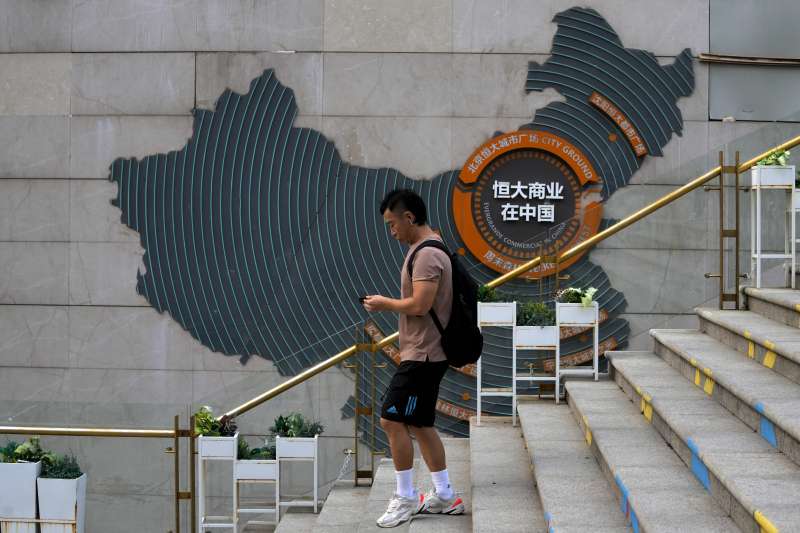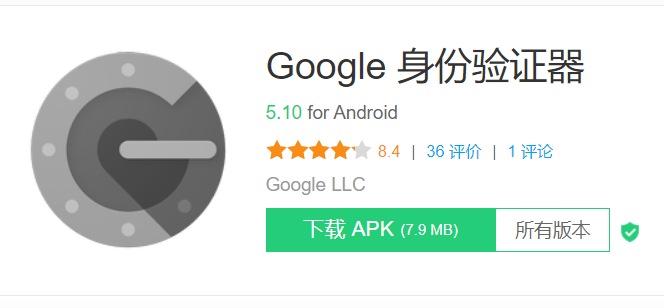一文看懂恒大危机,恒大集团面临破产,会成为“中国版雷曼兄弟”吗?
One article to understand the Evergrande crisis: facing life and death moments this week? Will it become "China's Lehman Brothers"?
The financial crisis of the national real estate giant "Hengda Group" detonated in an all-round way. The wave of selling triggered shocks in the national financial markets. At the close of the market on the 20th, the Hang Seng Index in Hong Kong fell 3.3%, Paris in Europe fell 2.26%, and London fell 1.55%. Even the recent stable US stocks have been affected. The Dow Jones Index plummeted more than 600 points, the Standard & Poor's 500 Index fell nearly 2%, the most actively traded iron ore futures fell 8.3%, and U.S. oil fell 2.3%.
[Start LINE push] Daily important news notification
Evergrande has real estate projects in more than 280 cities, but reported debts of US$304 billion (8 trillion and 418 billion yuan). Financial experts viewed the Evergrande repayment crisis as a major test for the Beijing authorities and warned that it may evolve into China’s Lehman Brothers moment, triggering a domino effect in China, the world’s second largest economy.
This week's development is crucial to Evergrande's survival. According to Bloomberg News, Evergrande was supposed to repay part of the bank loan interest on the 20th, but the Chinese authorities have notified major banks that Evergrande has still not repaid the interest due. According to data from the financial data company Refinitiv, Evergrande should pay interest on two bonds totaling more than US$100 million (approximately NT$2.775 billion) this week. If Evergrande fails to pay interest within the deadline, both bonds will default.
The following is what readers need to know about Evergrande and how it developed to its current state.
What company is Evergrande?
The endless concrete jungles of Chinese cities have caused the nation's population to move to cities on a large scale. The companies that built these buildings have benefited a lot. One of the best is Evergrande, which was established in 1996.
Evergrande Group is the second largest real estate developer in China and ranks among the world's top 500. Xu Jiayin, the founder of the group, was once the richest man in China. Evergrande is listed in Hong Kong and is headquartered in Shenzhen, a city in southern China. It has about 200,000 employees, more than 200 overseas subsidiaries, and nearly 2,000 domestic subsidiaries. It indirectly creates more than 3.8 million jobs every year. Goldman Sachs is said to have total assets owned by Evergrande equivalent to 2% of China's GDP.
Evergrande’s niche lies in real estate. It once claimed to have more than 1,300 construction projects in more than 280 cities in China. The British "Financial Times" reported that the company's land can even accommodate the whole of Portugal. But its business area is much more than that. In addition to real estate, the group has also invested in electric vehicles, sports projects, theme parks, and food and beverages sold in China. (Related report: UN Head: The "New Cold War" is more dangerous than the "Old Cold War"! The US and China must repair the "completely paralyzed" relationship as soon as possible | more articles)
In 2010, Evergrande acquired the current Guangzhou Evergrande football team. Since then, it has spent US$185 million (approximately NT$5.13 billion) to build the world's largest football school. It also spent US$1.7 billion (approximately NT$47.1 billion) to build the world’s largest football stadium in Guangzhou, shaping the stadium into a "giant lotus" that can accommodate 100,000 spectators, and it is expected to be completed as scheduled next year.
Evergrande spent 160 billion yuan (approximately 686.2 billion yuan) to build the Hainan artificial island theme park "Hengdahaihuadao", known as "Chinese Hawaii", and is expected to be fully operational by the end of 2021. According to the official website of Evergrande, 28 major business formats are planned on the island, including International Convention and Exhibition Center, Museum Group, Fairy Tale World, Water Park, Ocean World, International Shopping Center, Modern Hotel Group, Five-Country Hot Spring City, Chinese Film and Studio City. TV base. Designed by many world-class architects.
How did the crisis come?
In recent years, Evergrande’s debt has increased sharply because it borrowed money to make various huge investments in order to bet on expanding its business territory. The company's business relies on a large amount of borrowed funds, and its income is expected to keep up, but it will continue to make ends meet. The accumulated debt now exceeds 300 billion U.S. dollars. All entities with which it does business, from steel mills, interior design companies, home buyers to bond buyers and banks, have been deceived.
[Start LINE push] Daily important news notification
The ambitious plan turned Evergrande into a debt monster. Mattie Bekink, director of the Economist Intelligence Unit (EIU) China, said that the negligence of the core real estate business has caused Evergrande to fall into trouble. part of the reason. Goldman Sachs pointed out in a recent report that Evergrande’s business structure is complex and lacks sufficient information to disclose the company’s assets and liabilities. Analysts said that this makes it difficult for the outside world to predict how Evergrande will develop next.
The Evergrande crisis also marked the potential market risk brought by the huge debts of Chinese companies. "The Evergrande story tells us that China's economy is facing major structural challenges related to debt," Beckinck said. This problem has existed for a long time.
The Economist pointed out that the debt level of Chinese companies is "astounding", state-owned banks are reluctant to admit "bad debts", companies are good at "extend and present" (extend and blend), and bond default rates have been artificially lowered; by the end of 2020, The total debt of private non-financial enterprises is equivalent to 222% of China's GDP. For the country's long-term economic development and global investors holding Chinese stocks and bonds, this is a bullet that has not filled the market.
How much impact will the crisis have?
In September 2021, the financial crisis of the Chinese real estate giant "Hengda Group" detonated (AP)
一文看懂恒大危机:本周面临生死存亡时刻?会成为“中国版雷曼兄弟”吗?
全国房地产巨头“恒大集团”的金融危机全面引爆。抛售潮在全国金融市场引发震荡。 20日收市时,香港恒生指数下跌3.3%,欧洲巴黎下跌2.26%,伦敦下跌1.55%。就连近期稳定的美股也受到影响。道琼斯指数暴跌600多点,标准普尔500指数下跌近2%,交易最活跃的铁矿石期货下跌8.3%,美国石油下跌2.3%。
【开始LINE推送】每日重要新闻通知
恒大在 280 多个城市拥有房地产项目,但报告的债务为 3040 亿美元(8 万亿和 4180 亿元人民币)。金融专家将恒大还款危机视为对北京当局的一次重大考验,并警告说,它可能演变成中国的雷曼兄弟时刻,在世界第二大经济体中国引发多米诺骨牌效应。
本周的发展对恒大的生存至关重要。据彭博社报道,恒大本应于20日偿还部分银行贷款利息,但中国当局已通知各大银行,恒大仍未偿还到期利息。根据金融数据公司Refinitiv的数据,恒大本周应支付总额超过1亿美元(约合27.75亿新台币)的两只债券的利息。如果恒大未能在期限内支付利息,两种债券都将违约。
以下是读者需要了解的关于恒大以及它是如何发展到现在的状态。
恒大是什么公司?
中国城市一望无际的水泥丛林,让全国人口大规模迁往城市。建造这些建筑物的公司受益匪浅。最好的之一是恒大,它成立于 1996 年。
恒大集团是中国第二大房地产开发商,跻身世界500强。该集团的创始人许家印曾是中国首富。恒大在香港上市,总部位于中国南方城市深圳。拥有员工约20万人,海外子公司200多家,国内子公司近2000家。它每年间接创造超过 380 万个就业机会。高盛(Goldman Sachs) 据说恒大拥有的总资产相当于中国GDP的2%。
恒大的利基在于房地产。它曾声称在中国280多个城市拥有1300多个建设项目。英国《金融时报》报道称,该公司的土地甚至可以容纳整个葡萄牙。但其业务领域远不止于此。除了房地产,该集团还投资了电动汽车、体育项目、主题公园以及在中国销售的食品和饮料。 (相关报道:联合国首脑:“新冷战”比“旧冷战”更危险!美中必须尽快修复“完全瘫痪”的关系|更多文章)
2010年,恒大收购了现在的广州恒大足球队。此后,它斥资1.85亿美元(约合51.3亿新台币)建造了世界上最大的足球学校。它还斥资17亿美元(约合新台币471亿元)在广州建造了全球最大的足球场,将场馆塑造成一座可容纳10万观众的“巨莲花”,预计明年如期竣工。
恒大斥资1600亿元(约6862亿元)打造海南人工岛主题公园“横大海花岛”,号称“中国夏威夷”,预计2021年底全面投入运营。 据恒大官网介绍,全岛规划有国际会展中心、博物馆群、童话世界、水上乐园、海洋世界、国际购物中心、现代酒店集团、五国温泉城、中国电影和影视城等28个主要业态。电视基地。由许多世界级建筑师设计。
危机是怎么来的?
近年来,恒大的债务急剧增加,原因是它借债进行各种巨额投资,以押注扩大业务版图。公司业务依赖大量借入资金,预计收入会跟上,但继续入不敷出。现在累计负债超过3000亿美元。所有与它有业务往来的实体,从钢厂、室内设计公司、购房者到债券买家和银行都被骗了。
【开始LINE推送】每日重要新闻通知
雄心勃勃的计划让恒大成为了债务怪兽。经济学人智库(EIU)中国区总监马蒂·贝金克(Mattie Bekink)表示,核心房地产业务的疏忽导致恒大陷入困境。部分原因。高盛在最近的一份报告中指出,恒大的业务结构复杂,缺乏足够的信息来披露公司的资产和负债。分析人士表示,这让外界很难预测恒大接下来会如何发展。
恒大危机也标志着中国企业巨额债务带来的潜在市场风险。 “恒大的故事告诉我们,中国经济正面临与债务相关的重大结构性挑战,”贝金克说。这个问题已经存在很长时间了。
《经济学人》指出,中国企业的债务水平“惊人”,国有银行不愿承认“坏账”,企业擅长“extend and Present”(extend and糅合),债券违约率也被人为降低;到2020年底,民营非金融企业债务总额相当于中国GDP的222%。对于国家长期的经济发展和持有中国股票和债券的全球投资者来说,这是一颗未爆满市场的子弹。
危机会有多大影响?
2021年9月,中国地产巨头“恒大集团”金融危机引爆(美联社)
从本周的股市暴跌可以看出,人们担心恒大违约会引发一系列失控的多米诺骨牌效应:供应商破产、原材料价格暴跌、恒大出售房屋拖累中国房价、银行要求收回所有贷款,以及其他中国房地产公司。在类似的还款压力下关闭。
美国网络杂志《Slate》指出,了解恒大的商业利益,才有可能更清楚地了解情况。中国是世界上房屋拥有率最高的国家之一。房地产既是家庭财富的象征,也是热门的投资标的。这种购房文化造就了恒大大胆的销售模式。花费您毕生的积蓄并支付全额购买价格。
研究机构凯投宏观估计,恒大目前由于缺乏现金和各种项目暂停而无法全部交付出售的物业。恒大预售逾140万套未完工物业,总销售额约2000亿美元(约5.5万亿新台币)。受害的买家不计其数。几个月来,愤怒的买家一直在该公司工作。门外示威。 (相关报道:联合国首脑:“新冷战”比“旧冷战”更危险!美中必须尽快修复“完全瘫痪”的关系|更多文章)
恒大还拖欠员工工资,迫使员工将积蓄投入公司财富管理部门,以维持公司运营;与它有业务往来的室内设计公司和材料供应商也被杀,许多公司不得不裁员。或者被迫接受恒大旗下车位等低价资产而不是现金。最后,还有银行和债券持有人借出资金。恒大根本无法支付债务利息。
恒大会是中国的雷曼兄弟时刻?
市场盛传“中国房地产泡沫破裂”的说法,这一风险似乎近来更为逼近。最大的问题是:恒大危机会影响多远?这会是中国的雷曼兄弟时刻,还是各界的担忧被夸大了?
[启动LINE推播] 每日重大新闻通知
《华尔街日报》(WSJ)引述知情人士说法,最近几周,恒大债券持有者成立了专门委员会,与恒大和中国政府进行重组谈判。凯投宏观预测,这场危机的其中一个结局可能是,恒大进行资产重组,由其他开发商来接手恒大未完工的房地产建案。另一种可能性是北京当局出手相救,习近平面临的两难是:恒大是否大到不能倒?或者,救助它会否助长其他中国僵尸企业的气焰?
花旗(Citi)分析认为,恒大违约将对中国金融体系构成潜在风险,但不至于形成“中国的雷曼时刻”。就算违约、没有受到北京当局放款救助,央行或其他监管机构仍可能会介入,通过引导银行不要撤回信贷和延长利息支付期限,来“争取时间消化”恒大的坏帐。
《彭博社》也指出:“很难想像这家中国建商──虽然规模庞大,但负债只有雷曼兄弟的一半左右──会引发另一场全球金融危机,尤其是当中国根本不希望发生这样的事情时。”
标普全球评级(S&P Global Ratings)20日一份报告预测,若恒大违约效应没有大到无法忽视,决定改革市场环境的北京当局,可能不会向恒大提供任何直接帮助。该报告指出,“我们认为,只有在后果影响深远,导致多个主要建商倒闭并对经济构成系统性风险的情况下,北京才会被迫介入。只有恒大倒闭的话,不太可能导致这种情况。”
据中国媒体21日报导,恒大董事长许家印为缓解投资者的焦虑,在给员工的一封公开信中表示,公司有信心“走出最黑暗的时刻”,并按时交付房地产项目。恒大的投资者仍然对它信心全失,该公司股价今年已经暴跌80%以上,21日再次被疯狂抛售,跌幅高达7%。(相关报导:联合国掌门人:“新冷战”比“旧冷战”更危险!美中必须尽快修复“完全瘫痪”的关系|更多文章)
“我认为(恒大的)股权将被抹去,债务看起来陷入困境,中国政府将分拆这家公司,”美国做空机构香橼研究(Citron Research)创办人莱夫特(Andrew Left)告诉《路透社》(Reuters),“但我认为这不会成为压垮全球经济的最后一根稻草。”




